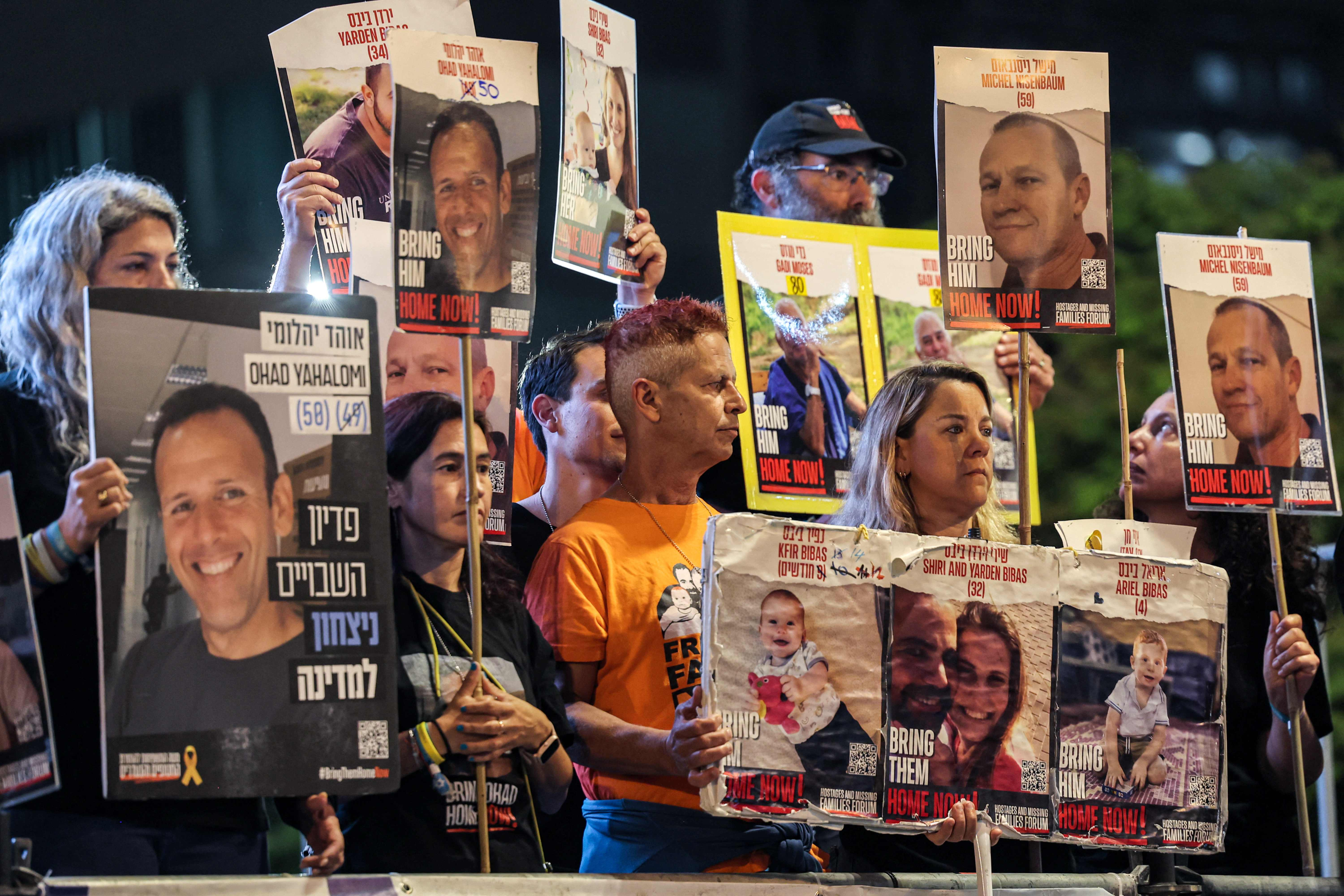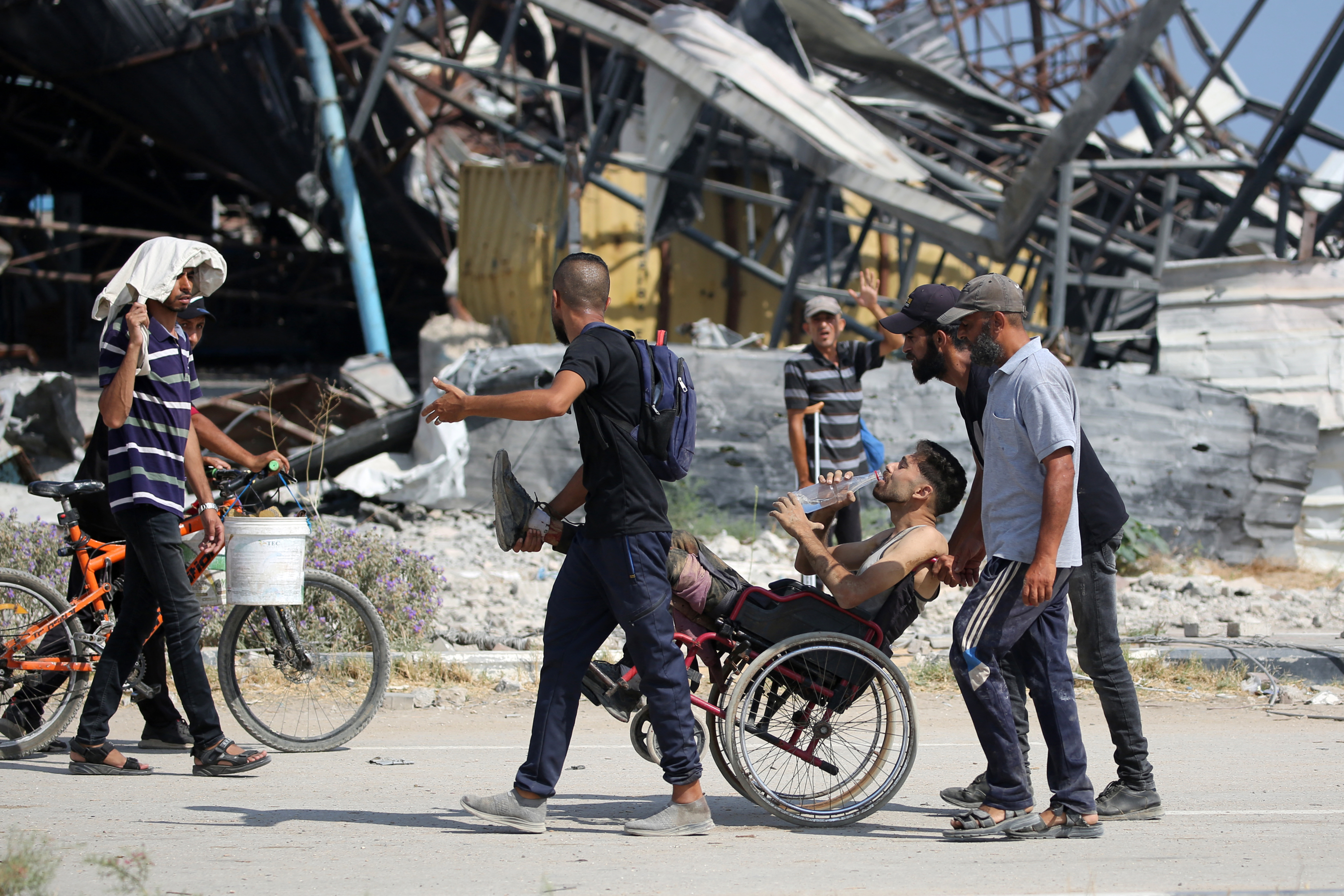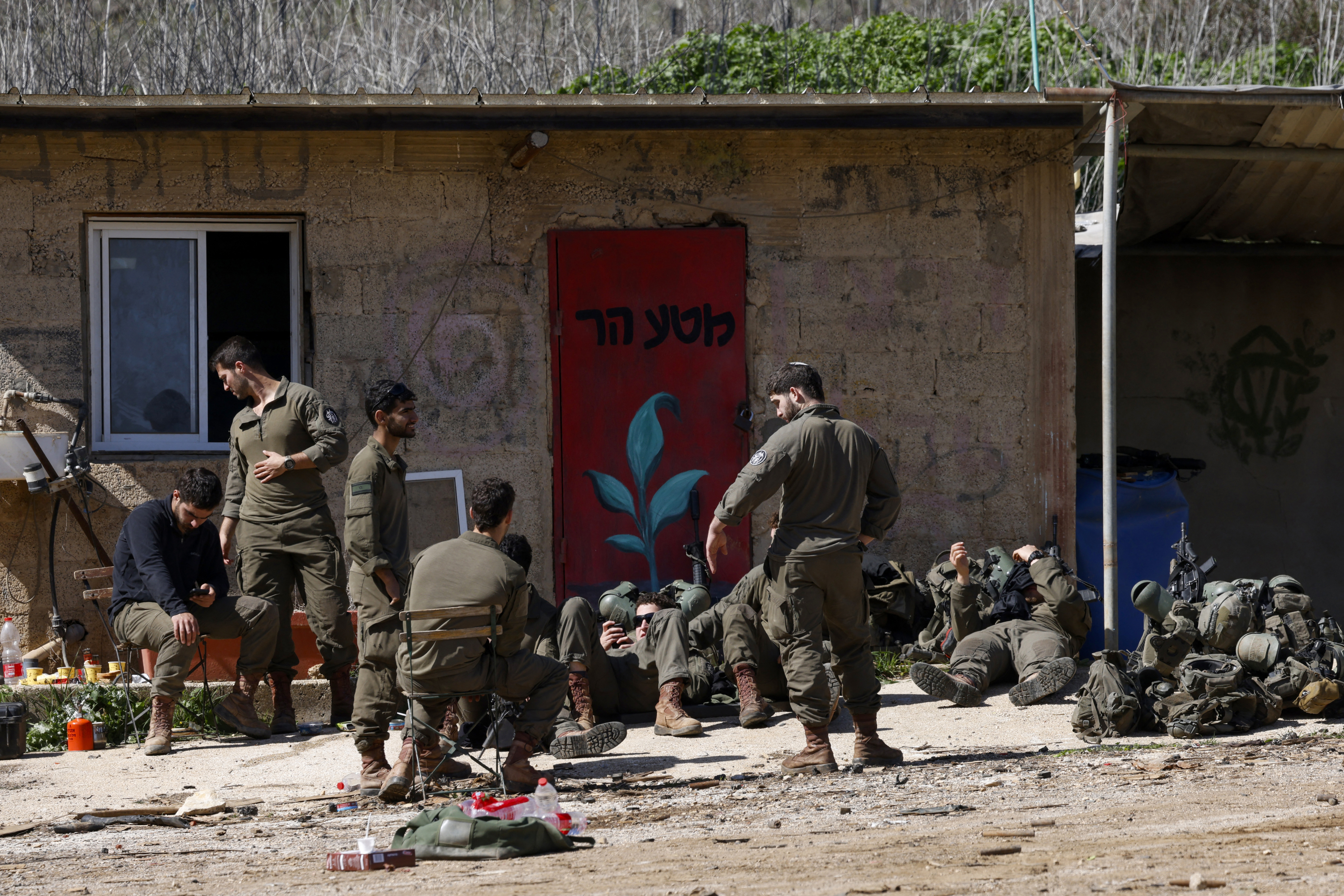Benjamin Netanyahu says Israel will soon launch its offensive against Hamas's last two strongholds in the Gaza Strip.

Israeli Prime Minister Benjamin Netanyahu said Sunday that Israel will launch its offensive "very soon" against Gaza City and the refugee camps in the center and south of the enclave (known as the Mawasi area), which it considers the last two Hamas strongholds in the Strip.
Meanwhile, Netanyahu also said that giving the Palestinians an independent state "is inviting a future war and a certain war," something that, he added, Israelis today "strongly" oppose.
The precondition for launching the offensive is the creation of "security zones," the location of which he did not specify, to which the population will be displaced. Netanyahu assured that they will be provided with "food, water, and medical care." In early July, the UN warned that these areas could constitute de facto "concentration camps."

Protests in Tel Aviv demanding the release of the kidnapped Israelis. Photo: AFP
In a press conference—the first of its kind in a year— the president did not specify when the army will enforce these displacements, although he did indicate that for now the objective is to mobilize the population of one of these "bastions," Gaza City .
"The timeframe we've set for this action is very early. I mean, first we're going to allow the establishment of 'safe zones,' facilities to which the civilian population of Gaza City can be transported so they can leave, just as they left Rafah (south)," he announced at a press conference held at his office in Jerusalem.
Israel designated Rafah (south) as the city to which the population had to evacuate until, on May 6, 2024 , the Army launched an operation against it, forcing the displacement of the 1.4 million people who were sheltering there (out of a population of 2.1 million) towards the southern coasts of Mawasi and other points in Gaza.
The president compared this displacement to the one Israel is now seeking to promote, stating that it took them between six and eight days to mobilize those who took refuge in this city, which borders Egypt.

Palestinians searching for food at a distribution center. Photo: AFP
"Last Thursday, the Israeli security cabinet instructed the army to dismantle the two remaining Hamas strongholds in Gaza City and the camps in the center," Netanyahu confirmed, showing a map of the Strip showing the capital and the Strip connected to the coast in the center and south of the enclave, generally known as Mawasi (although it also includes beaches further north of this town).
These two strongholds are the areas to which Israel has ordered the Gaza population to move on numerous occasions (although they have also been targeted by bombing) in recent months in response to its troop advances, and where the majority of the population is crowded.
It is estimated that nearly one million people are sheltering in Gaza City, while at the end of June the UN estimated the number of displaced people in Mawasi at around 425,000. This figure may have grown in recent months given the army's constant evacuation orders around these beaches.
Netanyahu asserted that Israel militarily controls between 70% and 75% of Gaza, although the UN Office for the Coordination of Humanitarian Affairs (OCHA) raises the figure to 86.3%, taking into account both areas under military control and those under evacuation orders.

Israeli soldiers. Photo: Jalaa MAREY / AFP
Netanyahu reiterated the "five principles" for ending the Gaza offensive that the cabinet approved at its meeting on Thursday: the disarmament of Hamas, the release of all hostages, the demilitarization of Gaza, Israeli security control over the enclave, and the creation of a peaceful, "non-Israeli" civilian administration for the Strip.
Previously, Israel's "war objectives," now renewed under these principles, were: to destroy Hamas's military and governing capabilities, to free the hostages, to ensure that the enclave did not pose a threat to Israel, and to allow Israelis displaced from communities near the border to return to their homes.
eltiempo





